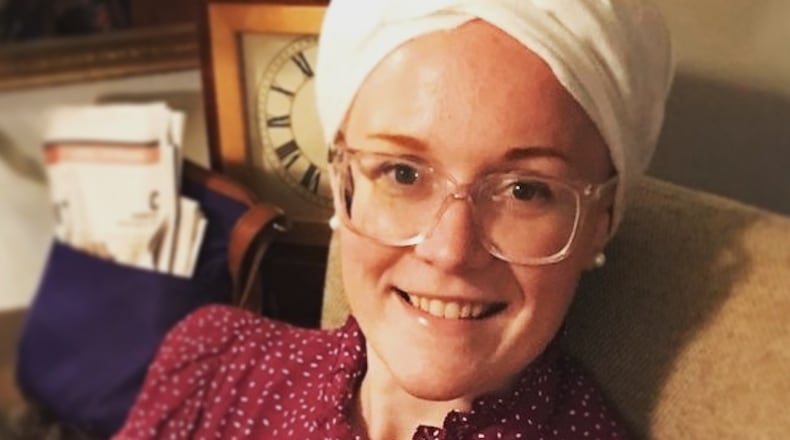As Milton High School graduate Carly Bastiansen pulls back the curtain of her life to bravely expose her personal story, she offers our community a new way to consider the chronically ill.
Trying to live well with hereditary pancreatitis, type 1 diabetes, and pancreatic cancer is the theme of her internet blog “The Chronic Self” – an ongoing memoir of her medical journey and reflective search for meaning amid her circumstances.
It is also a message of advocacy for the many chronically ill who may feel marginalized, and thus diminished, by a society primarily viewing them with pity.
I was so pleased when Bastiansen returned my email asking permission to highlight her work. Now living in the Baltimore area with her husband, David, 30-year-old Bastiansen is a busy young lady. She spends time with family and adores her work as a children’s librarian. Hobbies include cooking and photography.
She has a bachelor’s degree in English from Smith College in Massachusetts, and a graduate degree in library science. Her literary education deeply informs her sense of self and understanding of the world, she told me.
Bastiansen’s experience with pancreatitis started when she was in 4th grade. The pancreas is a digestive organ, and chronic pancreatitis causes abdominal pain and digestive difficulties. She later developed type 1 diabetes, which occurs when the body doesn’t produce insulin to regulate blood sugar.
Hereditary pancreatitis and diabetes together likely played a role in her new diagnosis of pancreatic cancer. There is currently no cure. A small percentage of people live five years or beyond.
“The Chronic Self” begins when Bastiansen first encounters her cancer diagnosis. At that point she’s still unsure of what’s to come. You hear her fear in awaiting results (she calls it “scanxiety”), and imagine all the sights and smells of her chemotherapy infusion.
Another descriptive entry, “Hair: Part 1,” has Bastiansen in front of a mirror contemplating chemo hair loss. She already cut off part of her curly red locks. In an effort to take control she shaves off the rest before it can all fall out.
“ It taught me I can do something brash and reckless,” she writes, “and that I don’t have to let my illness just make me sad.”
Beyond a revelation of determination, Bastiansen wants her book to have a higher mission. Nearly half of the U.S. population lives with a chronic illness, and 20 percent of children face special health care needs. All, she said, deserve to feel normal.
“I am asking you to share these experiences with me so that we can all work to normalize illness in our society,” she emphasized, “and advocate for the dignity of all those who live with chronic illness.”
Information on The Chronic Self: www.thechronicself.com
About the Author
The Latest
Featured


